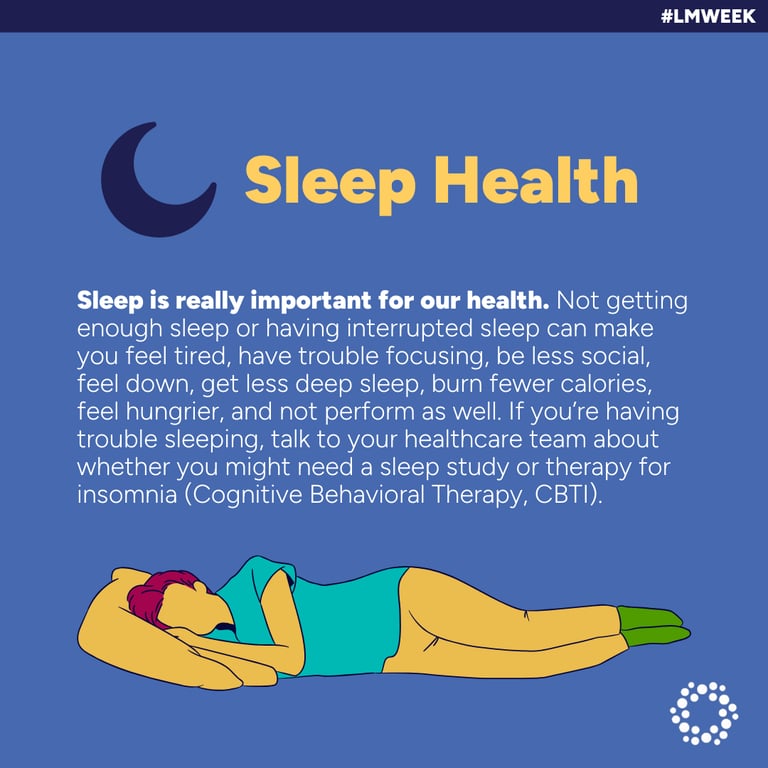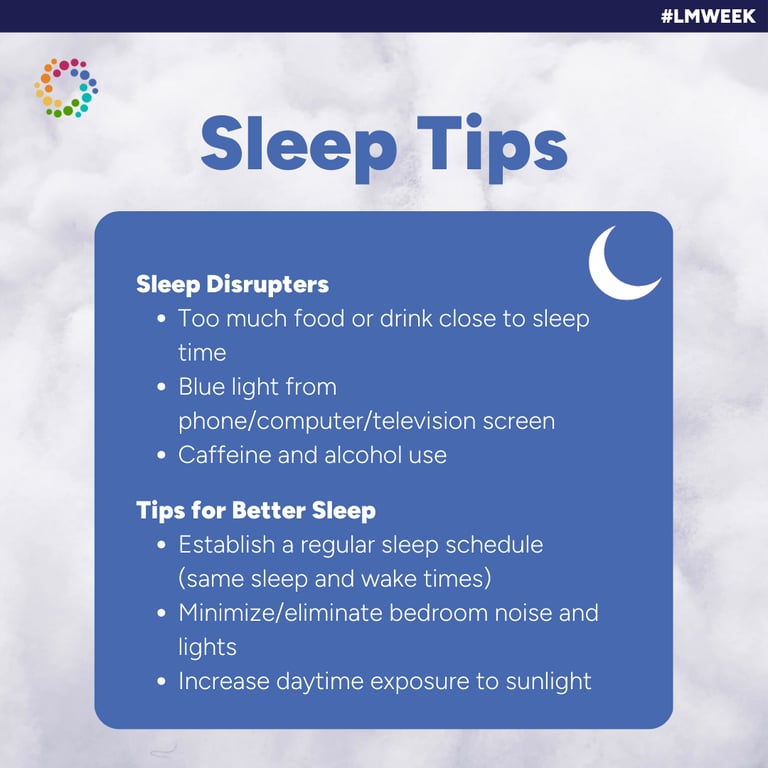Unlocking the Power of Restorative Sleep: A Pillar of Lifestyle Medicine
#VITASANALM#VITASANA#ACLM#LIFESTYLEMEDICINE#LMWEEK
Russell Smith PA-C, DipACLM
5/23/20252 min read


Understanding Restorative Sleep
We often underestimate the importance of sleep in our lives. It's not just about catching up on Z's but about experiencing restorative sleep that rejuvenates our minds and bodies. This type of sleep is a crucial pillar in lifestyle medicine—a holistic approach to health that emphasizes the value of healthy living for disease prevention and recovery.
The Science Behind Restorative Sleep
So, what exactly distinguishes restorative sleep from your average slumber? During restorative sleep, our bodies perform essential repairs and memory consolidation. This happens mainly in the deeper stages of sleep, where the magic occurs. Your brain cleans itself, flushing out toxins, and your muscles rebuild and recover, helping you feel refreshed and ready to tackle the day ahead.
Studies have shown that individuals who prioritize restorative sleep experience numerous physical and mental health benefits. We're talking about improved immune function, better mood regulation, and even enhanced cognitive performance. By incorporating good sleep hygiene practices into our lives, we can optimize this vital pillar of lifestyle medicine.
Tips for Achieving Restorative Sleep
Many people struggle with getting enough quality sleep, but there are effective strategies anyone can adopt. Here are a few easy tips to help you tap into the restorative sleep your body craves:
- Establish a Consistent Sleep Schedule: Go to bed and wake up at the same time every day, even on weekends. This consistency helps regulate your body’s internal clock.
- Create a Relaxing Bedtime Routine: Engage in calming activities like reading, meditating, or taking a warm bath before bed. This can signal to your body that it's time to wind down.
- Design a Sleep-Inducing Environment: Make your bedroom a sanctuary for sleep. Dim the lights, keep the room cool, and remove all distractions, including electronic devices.
- Watch What You Eat and Drink: Avoid heavy meals, caffeine, and alcohol close to bedtime. These can disrupt your sleep patterns and the experience of restorative sleep.
- Get Regular Exercise: Incorporating physical activity into your daily routine can promote deeper sleep. Aim for at least 30 minutes of moderate exercise most days—but remember not to do it right before bedtime!
Remember, the restorative sleep you seek won’t happen overnight. It takes time and commitment to establish healthier sleep habits. However, once you experience the benefits, you’ll be well on your way to a vibrant and energized life that embraces the principles of lifestyle medicine!


